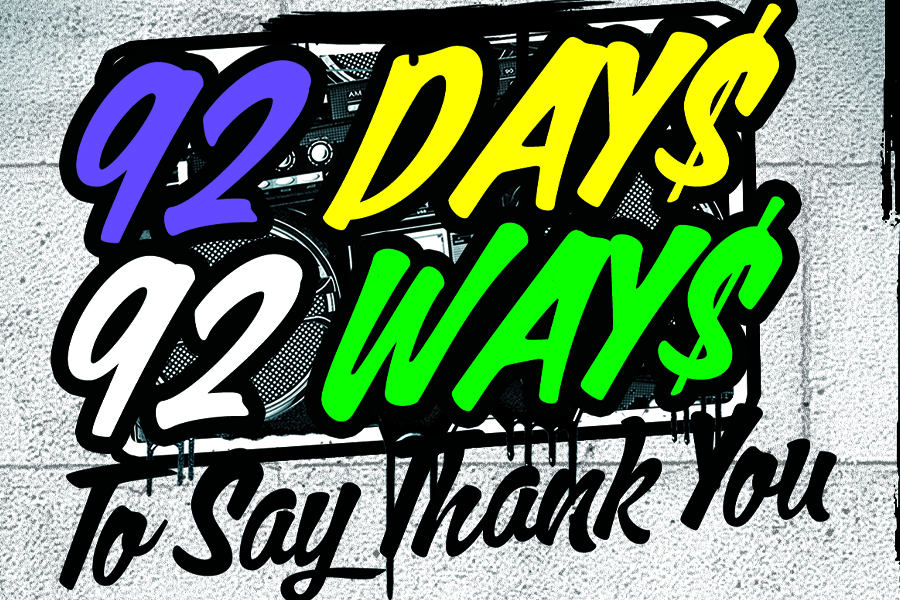Supreme Court hands Trump victory in Colorado 14th Amendment ballot challenge
The Supreme Court unanimously ruled Colorado cannot disqualify former President Trump from the ballot under the 14th Amendment’s insurrection ban, a historic decision that preserves Trump’s ability to seek a second presidential term.
Monday’s decision effectively ends the long-shot efforts that aimed to prevent Trump from returning to the White House, handing a monumental legal victory to the former president on the eve of Super Tuesday, when he is poised to close in on clinching the Republican nomination.
Voters and advocacy groups had filed dozens of challenges to Trump’s ballot eligibility in states across the country, claiming his actions surrounding the Jan. 6, 2021, Capitol attack triggered his disqualification.
The high court instead sided with Trump by ruling Congress has exclusive authority to enforce the 14th Amendment to disqualify federal candidates.
“Because the Constitution makes Congress, rather than the States, responsible for enforcing Section 3 against federal officeholders and candidates, we reverse,” read the unsigned opinion from the court.
All nine justices sided with Trump, but the court’s three liberals and conservative Justice Amy Coney Barrett wrote separately to criticize the majority for going further than it needed to.
The court ruled 9-0 that states have no unilateral authority to disqualify federal candidates, but five of the court’s conservatives went on to specify that the only way for the provision to be enforced is through a statute from Congress.
The three liberal justices — Sonia Sotomayor, Elena Kagan and Ketanji Brown Jackson — in a joint opinion said the majority improperly decided “novel constitutional questions to insulate this Court and [Trump] from future controversy.”
“In a sensitive case crying out for judicial restraint, it abandons that course,” the justices said of the majority.
Barrett similarly wrote, “The Court has settled a politically charged issue in the volatile season of a Presidential election. Particularly in this circumstance, writings on the Court should turn the national temperature down, not up.”
“For present purposes, our differences are far less important than our unanimity: All nine Justices agree on the outcome of this case. That is the message Americans should take home,” Barrett continued.
The 14th Amendment prevents individuals who took an oath to support the Constitution and then engaged in insurrection from returning to office, unless Congress votes to lift their disqualification.
Originally designed to keep ex-Confederates from returning to power, the Civil War-era provision fell dormant for decades before anti-Trump voters and groups began filing dozens of lawsuits against Trump in the wake of Jan. 6.
Colorado became the first state to disqualify Trump after a group of Republican and independent voters filed a lawsuit backed by Citizens for Responsibility and Ethics in Washington (CREW), an officially nonpartisan watchdog that regularly challenges Trump.
Maine and Illinois later followed suit, while judges in many other states tossed lawsuits that came before them. Trump’s name had remained on the ballot everywhere, however, as he mounted appeals.
The Supreme Court decided Monday that states may disqualify candidates or officeholders attempting to hold state office for violating Section 3 but have no power to enforce the rule against federal offices – “especially the presidency,” the justices wrote.
The justices also wrote that allowing states to decide whether federal offices can be disqualified under the insurrection clause would “invert” the rebalancing of federal and state power the 14th Amendment achieved.
The Supreme Court’s decision now supplies voters with a decisive resolution to the legal battle, which again thrust the justices into the center of a presidential election nearly a quarter-century after the Supreme Court decided Bush v. Gore in 2000.
Trump celebrated the high court’s decision on Truth Social, writing in a post “BIG WIN FOR AMERICA!!!”
CREW said in a statement that the Supreme Court “failed to meet the moment” by allowing Trump back on the ballot but called the ruling “in no way a win” for the former president.
“The Supreme Court had the opportunity in this case to exonerate Trump, and they chose not to do so,” CREW President Noah Bookbinder said. “Every court – or decision-making body – that has substantively examined the issue has determined that January 6th was an insurrection and that Donald Trump incited it. That remains true today.”
Colorado Secretary of State Jena Griswold (D) said in a statement that the Supreme Court’s decision affirms Trump as an “eligible candidate on Colorado’s 2024 Presidential Primary.”
Monday’s opinion was issued speedily, less than four weeks after oral arguments and one day before Super Tuesday, when voters in Colorado and 14 other states will cast their ballots and could nearly propel Trump to clinch the Republican nomination.
The justices preserved Trump’s eligibility while avoiding the most politically contentious issue of whether Trump engaged in insurrection with his Ellipse speech and other actions surrounding the Capitol riot.
Instead, the justices resolved the case by ruling that a singular state has no authority to disqualify a presidential candidate from the primary ballot.
The ballot ban case isn’t the only historic Trump-related case on the justices’ docket.
In April, the justices will hear Trump’s arguments that he has presidential immunity from his criminal charges accusing him of conspiring to subvert the 2020 election results, a case that will impact the future of three of Trump’s four indictments. He pleaded not guilty to all 91 charges.
Updated at 10:39 a.m. ET




